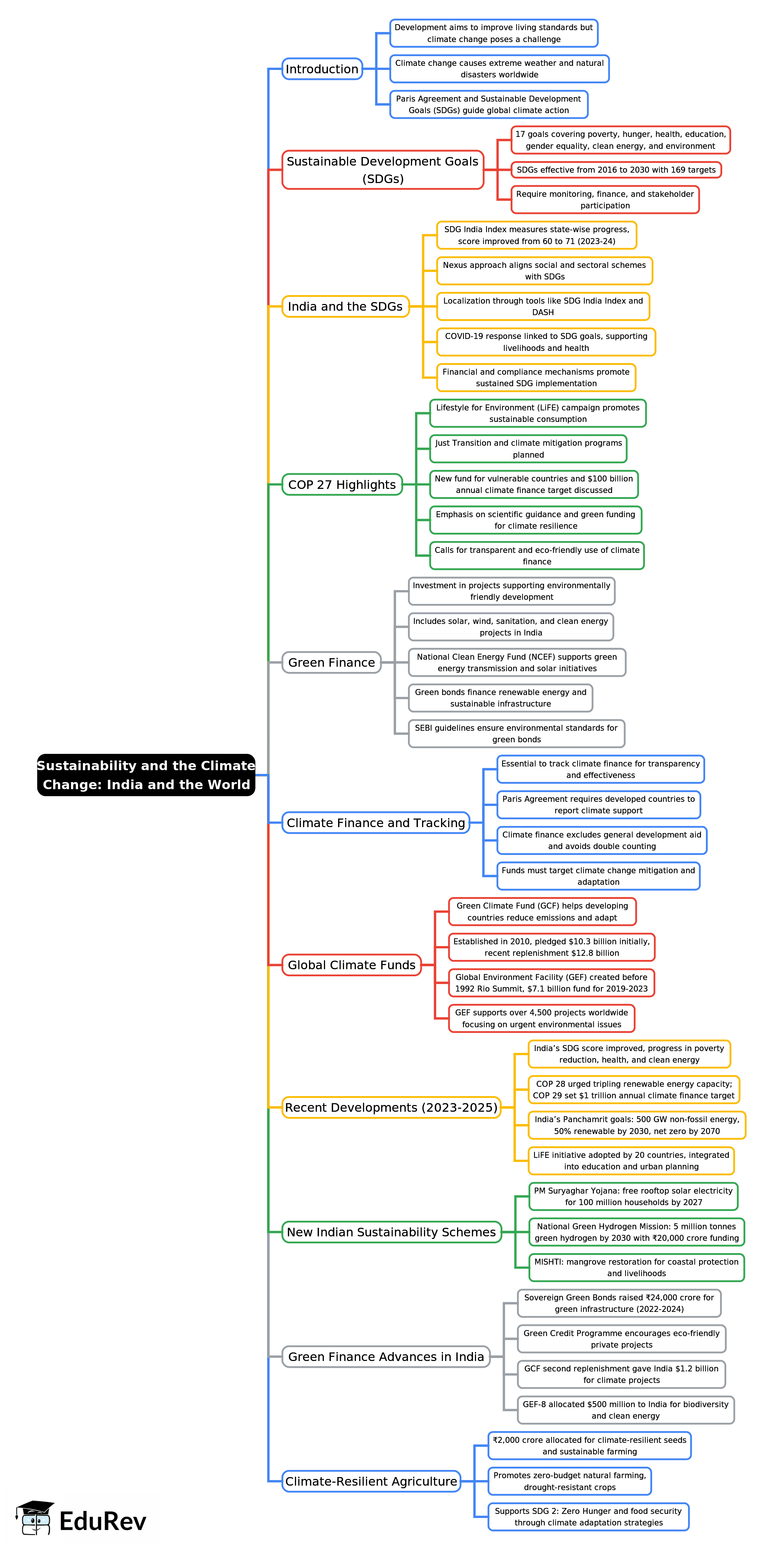UPSC Exam > UPSC Notes > Indian Economy for UPSC CSE > Mind Map: Sustainability and the Climate Change: India & the World
Mind Map: Sustainability and the Climate Change: India & the World | Indian Economy for UPSC CSE PDF Download
Sustainability and the Climate Change: India & the World - 1

Sustainability and the Climate Change: India & the World - 2

The document Mind Map: Sustainability and the Climate Change: India & the World | Indian Economy for UPSC CSE is a part of the UPSC Course Indian Economy for UPSC CSE.
All you need of UPSC at this link: UPSC
|
173 videos|487 docs|159 tests
|
FAQs on Mind Map: Sustainability and the Climate Change: India & the World - Indian Economy for UPSC CSE
| 1. What are the key components of sustainability in relation to climate change in India and globally? |  |
Ans. The key components of sustainability in relation to climate change include the integration of environmental conservation, social equity, and economic growth. In India, this entails utilizing renewable energy sources, promoting sustainable agriculture, and improving waste management. Globally, it involves international cooperation, adherence to climate agreements like the Paris Agreement, and the adoption of sustainable practices across industries.
| 2. How does India's climate policy align with global sustainability goals? |  |
Ans. India's climate policy aligns with global sustainability goals through its commitment to reducing greenhouse gas emissions, enhancing forest cover, and increasing the share of renewable energy in its energy mix. India has pledged to meet its Nationally Determined Contributions (NDCs) under the Paris Agreement, focusing on sustainable development while addressing the impacts of climate change.
| 3. What role does renewable energy play in achieving sustainability in India? |  |
Ans. Renewable energy plays a crucial role in achieving sustainability in India by reducing dependence on fossil fuels, lowering carbon emissions, and promoting energy security. The government has set ambitious targets for solar and wind energy, which not only help in mitigating climate change but also create jobs and stimulate economic growth.
| 4. What are the challenges faced by India in implementing sustainable practices to combat climate change? |  |
Ans. India faces several challenges in implementing sustainable practices, including limited financial resources, technological gaps, and the need for extensive infrastructure development. Additionally, balancing economic growth with environmental protection remains a significant challenge, particularly in a developing country with a large population and diverse needs.
| 5. How can individuals contribute to sustainability and combat climate change? |  |
Ans. Individuals can contribute to sustainability and combat climate change by adopting eco-friendly practices such as reducing waste, conserving energy, using public transportation, and supporting sustainable products. Raising awareness and advocating for policies that promote environmental conservation can also create a collective impact in addressing climate change on a larger scale.
Related Searches





















